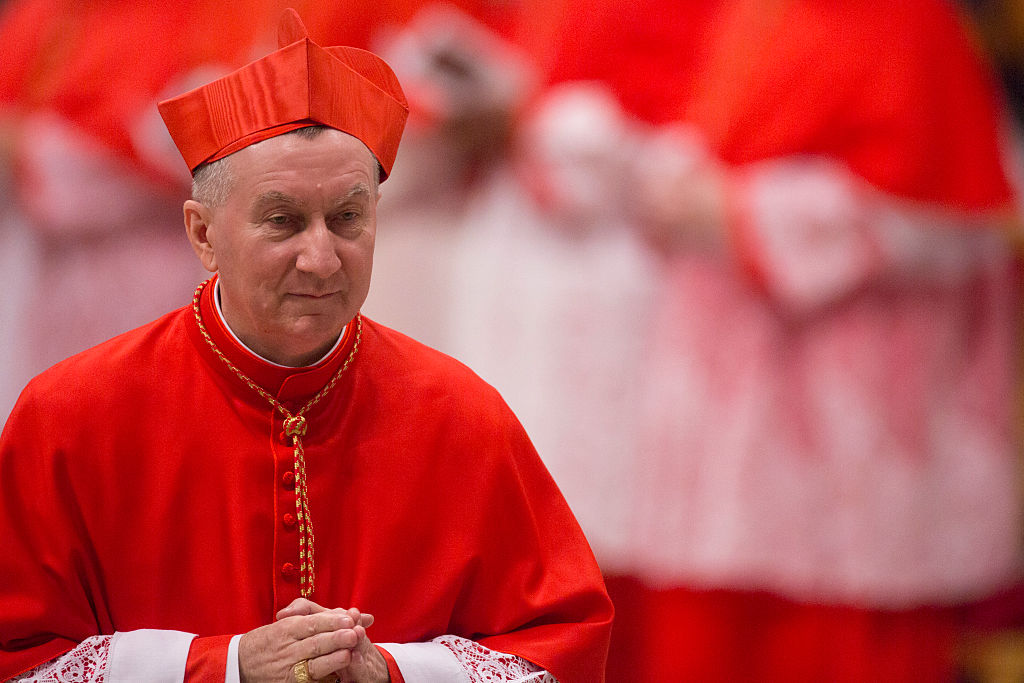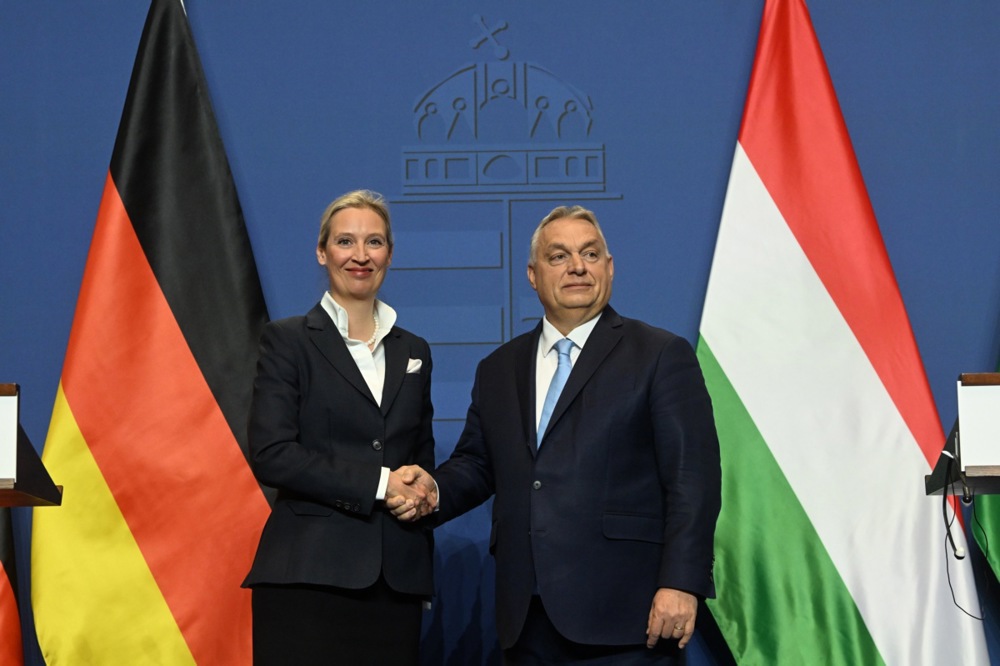The nomination by right-wing leader Jarosław Kaczyński, of the dynamic Karol Nawrocki, a candidate from outside the world of politics, and a good election campaign (despite the ruling party’s deprivation of public funding for the Conservative Law and Justice party) changed the course of Polish politics. No changes to the justice system proposed by the current parliamentary majority will now be passed. There will be no mass reconciliation either, at most a few cases as part of political revenge. And even then, the president may exercise his right of mercy at the end of the procedure.
However, all this does not explain such a sharp decline in support for the so-called restoration of “the rule of law”. Before 2023, marches by people demanding the complete reversal of changes and total subordination to European courts and the European Commission were able to gather hundreds of thousands of people across the country. Today, this is difficult to imagine. Why?
The answer lies in the brutal actions of the team that took power after 2023. It immediately began to use the justice system to achieve its political goals. This was the result of misreading the intentions behind the Polish people’s electoral decision. Tired of the reformist zeal of Law and Justice Prime Minister Kaczyński’s team and his justice minister Zbigniew Ziobro, they expected restoration of peace in this area. What they got were political investigations initiated by Prime Minister Tusk at press conferences, with suggestions of guilt and verdicts. Actions that were considered by a large part of the public to be mere persecution of the opposition began on a massive scale.
At dawn, officers from various services raided the homes of people who had been unlucky enough to receive government subsidies for their non-governmental organisations. In the absence of evidence of guilt, the suspects were held in custody for many months in extremely difficult conditions. Measures were taken against Father Michał Olszewski, who was building a centre to help victims of crimes, which even the liberal Ombudsman considered to be “inhumane treatment and a violation of rights and freedoms”. Public opinion was shocked by the months-long detention of two ordinary female civil servants who had the misfortune of working too closely with the previous government.
The pardons granted by the president began to be selectively recognised. Two Law and Justice MPs ended up in prison, from where they were released thanks to mass protests outside the gates of the facility. Former Deputy Minister of Justice Marcin Romanowski was granted political asylum in Hungary. The argument that a fair trial was not possible in Poland, which came from there, proved convincing.
It quickly became apparent that the whole process of settling scores for the alleged crimes of their predecessors boiled down to seeking opportunities to politically eliminate three leaders of the right-wing camp: Former Prime Minister Jarosław Kaczyński, former Prime Minister Mateusz Morawiecki and former Minister Zbigniew Ziobro. The investigations and arrests were clearly intended to provide evidence against them. However, this was carried out in too primitive way to be effective.
Admittedly, the cynical dismantling of the judge selection procedure introduced by the previous government did not help. The new government added a ‘small modification’: If the result of the draw was unsatisfactory, the draw was invalidated under any pretext. And so on until the desired result was achieved. But the fraud was exposed, morally compromising those responsible for that.
The judges themselves quickly realised that the position of the current government was not as strong as it seemed, and that the current opposition could return. This caused heated tempers to cool and a reluctance to sign decisions that could be reviewed in the future. Lawyers representing several defendants in political cases told me that already during the presidential campaign, when it became clear that the victory of Tusk’s candidate, Rafal Trzaskowski, was not certain, they began to receive better treatment for those arrested, for example, more frequent visits from relatives.
This brings us to the political background. According to the latest OGB poll, 23.5 per cent of Poles have a positive opinion of Tusk’s government, while 55.6 per cent have a negative opinion. In a year and a half, most of the political capital of Tusk and his 2023 coalition has been lost. If elections were held today, the current coalition would most likely lose power.
The Prime Minister has problems carrying out effective political offensives. He has good economic results, which are the result of the earlier acceleration of the economy, but the budget and public finances are in a dire situation, and he has also halted large public investments. The economy is growing, but tax revenues are falling. The reason? “The entire state apparatus has been directed towards fighting the opposition, while criminals do whatever they want,” replies the opposition. And to many ears, this sounds convincing.
The defeat in the presidential election confirmed the weakening of Tusk’s camp, but also naturally accelerated this process. To some extent, it was a referendum on Tusk’s rule, including his attitude towards judicial reforms. Against this backdrop, the verdict of the Court of Justice of the EU looks to many like a primitive ploy by those in power. They had no problem with the fact that the results of the parliamentary elections they won in 2023 were recognised by the Extraordinary Control and Public Affairs Chamber of the Supreme Court. When the presidential election did not go their way, they tried to discredit the Chamber and deprive it of its power to issue rulings. It is doubtful that such arguments would convince anyone outside the circle of the most ardent supporters.
Looking even deeper, we come to a major change in attitudes that has taken place in Poland over the last decade. According to a July 2025 poll by the CBOS research institute, 81 per cent of respondents declare their support for Poland’s membership in the EU, 13 per cent are opposed to membership in the community, and 6 per cent are undecided. These figures, which have remained high for years, are often used by supporters of a European superstate to justify their consent to the unlimited expansion of European institutions and their seizure of further powers. There is a serious flaw in this thinking.
I want Poland to be in the European Union, and I appreciate the benefits that this brings as well. At the same time, however, I want a Union of independent states, operating as agreed in the treaties and as decided in the referendum held in Poland in 2003.
The EU’s attempts, at the level of the European Commission and the courts, to dictate the shape of the judiciary in Poland down to the last comma, in the opinion of a large part of the Polish political elite go beyond the powers of these bodies.
It is worth remembering that, in the light of the Polish constitution and the verdicts of the Constitutional Tribunal (although the latter are also too subject of political controversy), Polish law takes precedence over EU law, with the exception of those areas that have been clearly and formally transferred to the European Union. The organisation of the judiciary is not one of them. And although some politically involved judges call themselves “European judges”, this is only of propaganda significance. They remain judges of the Polish state.
Comparative arguments also carry weight: Brussels considers the situation in which the Polish parliament elects members of the National Council of the Judiciary from among judges to be unlawful. In Germany, it is lawful to elect judges to similar bodies directly from among politicians.
The tensions of recent years, first the pandemic and then the war in Ukraine, the influx of refugees from Ukraine and the need for massive military spending, have been an effective vaccine against the ideology of a European superstate for many. From the Polish perspective, every major crisis falls on the shoulders of the nation state, with Brussels’ response being weak and full of hesitation. What is more, the growing anti-American sentiment within the EU establishment is creating tension that is dangerous from Poland’s point of view. Does deeper integration mean giving up the main guarantors of security, namely NATO and special relations with the United States? The answer is increasingly yes, which weakens the position of supporters of endless integration.
The indifference with which the CJEU ruling was received suggests that after a possible change of power in 2027, with the strongly pro-sovereignty President Karol Nawrocki, Poland will make an attempt a fundamental reformulation of its relations with Brussels. Much depends, of course, on the internal situation within the EU and in membership states. However, it is a fact that in internal debates on the reasons for the defeat of the right-wing in 2023, the accusation of excessive submissiveness to the unbridled power of the European Commission and the courts often arises. And the potential coalition partner of Law and Justice, the Confederation, is much more radical in this regard. Either way, Tusk’s attempt to turn back time after 2023 has failed. And no Court of Justice of the EU verdict can change that.
This is the final part of a two-part special





Dollars and the old clerical flaws: does Leo XIV have questions to answer?